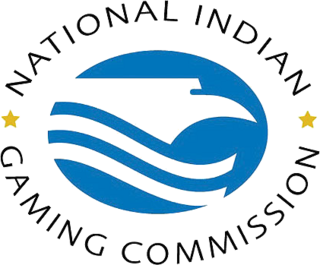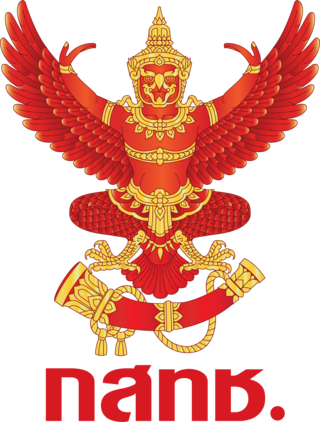In the United States government, independent agencies are agencies that exist outside the federal executive departments and the Executive Office of the President. In a narrower sense, the term refers only to those independent agencies that, while considered part of the executive branch, have regulatory or rulemaking authority and are insulated from presidential control, usually because the president's power to dismiss the agency head or a member is limited.
A communist state is a form of government that combines the state leadership of a communist party, Marxist–Leninist political philosophy, and an official commitment to the construction of a communist society. Communism in its modern form grew out of the socialist movement in 19th-century Europe and blamed capitalism for societal miseries. In the 20th century, several communist states were established, first in Russia with the Russian Revolution of 1917 and then in portions of Eastern Europe, Asia, and a few other regions after World War II. The institutions of these states were heavily influenced by the writings of Karl Marx, Friedrich Engels, Vladimir Lenin, Joseph Stalin and others. During most of the 20th century, around one-third of the world's population lived in communist states. However, the political reforms of Soviet leader Mikhail Gorbachev known as Perestroika and socio-economic difficulties produced the revolutions of 1989, which brought down all the communist states of the Eastern Bloc bar the Soviet Union. The repercussions of the collapse of these states contributed to political transformations in the Soviet Union and Yugoslavia and several other non-European communist states. Presently, there are five communist states in the world: China, Cuba, Laos, North Korea and Vietnam.
The 1977 Constitution of the Soviet Union, officially the Constitution of the Union of Soviet Socialist Republics, was the constitution of the Soviet Union adopted on 7 October 1977.

A government or state agency, sometimes an appointed commission, is a permanent or semi-permanent organization in the machinery of government that is responsible for the oversight and administration of specific functions, such as an administration. There is a notable variety of agency types. Although usage differs, a government agency is normally distinct both from a department or ministry, and other types of public body established by government. The functions of an agency are normally executive in character since different types of organizations are most often constituted in an advisory role—this distinction is often blurred in practice however, it is not allowed.
An audit committee is a committee of an organisation's board of directors which is responsible for oversight of the financial reporting process, selection of the independent auditor, and receipt of audit results both internal and external.

The political system of the Soviet Union took place in a federal single-party soviet socialist republic framework which was characterized by the superior role of the Communist Party of the Soviet Union (CPSU), the only party permitted by the Constitution.

The Central Commission for Discipline Inspection (CCDI) is the highest supervisory organ of the Chinese Communist Party (CCP). The CCDI is under the control of the CCP Central Committee, per the principle of unified power. It is tasked with defending the party constitution, enforcing inner-party regulations, coordinating anti-corruption work, and safeguarding the core position of Xi Jinping in the CCP Central Committee and the party as a whole. Safeguarding the political position of Xi and the Central Committee is, officially, the CCDI's highest responsibility. Since the vast majority of officials at all levels of government are also CCP members, the commission is, in practice, the top anti-corruption body in China.
The Constitution of the Republic of Iraq is the fundamental law of Iraq. The first constitution came into force in 1925. The current constitution was adopted on September 18, 2005 by the Transitional National Assembly of Iraq, and confirmed by constitutional referendum, held on October 15, 2005. It was published on December 28, 2005 in the Official Gazette of Iraq, in Arabic original, and thus came into force. An official translation into English for international use was produced in cooperation between Iraqi state authorities and the United Nations' Office for Constitutional Support. Since 2006, several proposals for adoption of various constitutional amendments were initiated. The Kurdish language is official at state level.
A regulatory agency or independent agency is a government authority that is responsible for exercising autonomous dominion over some area of human activity in a licensing and regulating capacity.
A gaming control board (GCB), also called by various names including gambling control board, casino control board, gambling board, and gaming commission, is a government agency charged with regulating casino and other types of gaming in a defined geographical area, usually a state, and of enforcing gaming law in general.

State-corporate crime is a concept in criminology for crimes that result from the relationship between the policies of the state and the policies and practices of commercial corporations. The term was coined by Kramer and Michalowski (1990), and redefined by Aulette and Michalowski (1993). These definitions were intended to include all "socially injurious acts" and not merely those that are defined by the local criminal jurisdiction as crime. This is not universally accepted as a valid definition so a less contentious version has been adopted here. As an academic classification, it is distinguished from:

The Prime Minister of the Lao People's Democratic Republic, formerly the chairman of the Council of Government of the Lao People's Democratic Republic, is the head of government of Laos. The highest position in the government, they direct the country's executive branch. The prime minister is accountable to the president, the National Assembly and the country's only legal party: the Lao People's Revolutionary Party (LPRP). The current prime minister is Sonexay Siphandone, who was elected in 2022.

The National Indian Gaming Commission is a United States federal regulatory agency within the Department of the Interior. Congress established the agency pursuant to the Indian Gaming Regulatory Act in 1988.
The federal government of Iraq is defined under the current Constitution, approved in 2005, as an Islamic, democratic, federal parliamentary republic. The federal government is composed of the executive, legislative, and judicial branches, as well as numerous independent commissions.

The government of Niger is the apparatus through which authority functions and is exercised: the governing apparatus of Nigerien state. The current system of governance, since the Constitution of 25 November 2010, is termed the Seventh Republic of Niger. It is a semi-presidential republic, whereby the President of Niger is head of state and the Prime Minister of Niger head of government. The officials holding these posts are chosen through a representative democratic process of national and local elections, in the context of a competing multi-party system. Executive power is exercised by the government. Legislative power is vested in both the government and the National Assembly. The judiciary is independent of the executive and the legislature: its Constitutional Court has jurisdiction over constitutional and electoral matters.

The politics of France take place with the framework of a semi-presidential system determined by the French Constitution of the French Fifth Republic. The nation declares itself to be an indivisible, secular, democratic, and social Republic". The constitution provides for a separation of powers and proclaims France's "attachment to the Rights of Man and the principles of National Sovereignty as defined by the Declaration of 1789".
Utility ratemaking is the formal regulatory process in the United States by which public utilities set the prices they will charge consumers. Ratemaking, typically carried out through "rate cases" before a public utilities commission, serves as one of the primary instruments of government regulation of public utilities.
Mass media regulations are a form of media policy with rules enforced by the jurisdiction of law. Guidelines for media use differ across the world. This regulation, via law, rules or procedures, can have various goals, for example intervention to protect a stated "public interest", or encouraging competition and an effective media market, or establishing common technical standards.
The Judiciary of Kosovo is the collection of the central Kosovo institutions that exercises judicial authority in Kosovo. According to the 2008 Constitution of Kosovo, the judicial system is composed of the Supreme Court and subordinate courts, a Constitutional Court, and an independent prosecutorial institution. The courts are administered by the Kosovo Judicial Council.

The National Broadcasting and Telecommunications Commission, served by its operating body the Office of the NBTC, is an independent regulatory agency of Thailand. It is responsible for overseeing the country's broadcast and telecommunications industries, especially the regulation of radio frequencies.








